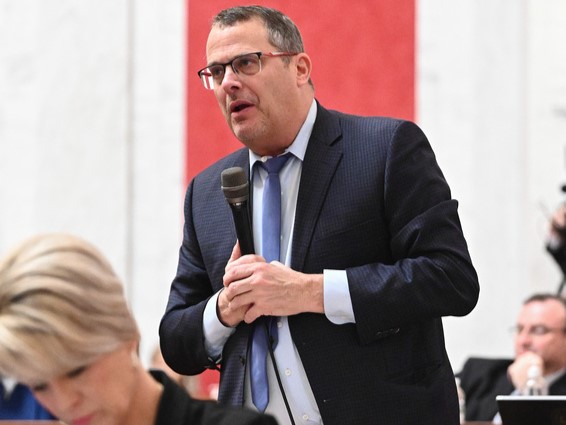Twenty-one projects in West Virginia will receive a total of $1,124,446 from the STOP (Services, Training, Officers and Prosecutors) Violence Against Women program.
This is a federally funded program. According to the Department of Justice website, “Each state and territory must allocate 25 percent for law enforcement, 25 percent for prosecutors, 30 percent for victim services (of which at least 10 percent must be distributed to culturally specific community-based organizations), 5 percent to state and local courts and 15 percent for discretionary distribution.”
The purpose of these funds is to establish or enhance teams that include victim service providers, law enforcement and prosecution to improve the criminal justice system’s response to violence against women.
The grants provide personnel, equipment, training, technical assistance and information systems for the establishment or enhancement of these teams. Additionally, statewide projects are funded to provide training and educational opportunities for all victim service providers, law enforcement, prosecution and court personnel throughout West Virginia.
These funds are provided by the U.S. Department of Justice’s Office on Violence Against Women, and are administered by the Justice and Community Services Section of the West Virginia Division of Administrative Services.
Funds were awarded to the following:
West Virginia Coalition Against Domestic Violence, Inc. — $46,645
These funds will provide outreach, training and technical assistance opportunities for STOP Teams, advocates, employers, communities of faith and other allied professionals.
West Virginia Foundation for Rape Information and Services — $171,074
These funds will assist in strengthening services for sexual assault and stalking victims through enhanced training, collaboration, resource development and technical assistance.
Supreme Court of Appeals of West Virginia — $56,694
These funds will provide for the expansion of the Victim Outreach Remote Technology Project to improve the court’s response to violent crimes against women through training and increasing virtual access to the state court system for victims and survivors.
West Virginia Prosecuting Attorneys Institute — $74,280
These funds will be used to continue to develop and strengthen prosecution strategies and best practices, as well as improve prosecution-based victim services in cases involving violence against women.
Putnam County Commission — $27,332
These funds will provide for the continuation of domestic violence investigation, follow up services and training.
Rape and Domestic Violence Information Center — $66,564
These funds will provide for the development of best practices for survivors, and create participation in meetings, collaborations, training and awareness events.
Rape and Domestic Violence Information Center — $30,424
These funds will provide for the development of best practices for survivors and allowing participation in meetings, collaborations, training, and awareness events.
Comprehensive Women’s Service Council, Inc. — $62,560
These funds will help build a more coordinated and informed community response to victims of domestic violence, sexual assault, dating violence and stalking, holding perpetrators accountable for their crimes.
Comprehensive Women’s Service Council, Inc. — $32,709
These funds will help build a more coordinated and informed community response to victims of domestic violence, sexual assault, dating violence and stalking, and holding perpetrators accountable for their crimes.
Comprehensive Women’s Service Council, Inc. — $39,104
These funds will help build a more coordinated and informed community response to victims of domestic violence, sexual assault, dating violence and stalking, holding perpetrators accountable for their crimes.
Branches Domestic Violence Shelter, Inc. — $106,065
These funds will provide comprehensive assistance to victims of violence, sexual assault and stalking in Cabell County by providing effective prosecution, victimadvocacy, legal advocacy, crisis intervention, support services, training and evidence collection.
Family Refuge Center — $31,634
These funds will be used to improve and enhance advocacy for victims of domestic violence, sexual assault, stalking and teen dating violence through collaboration in Greenbrier County.
Family Refuge Center — $30,692
These funds will be used to improve and enhance advocacy for victims of domestic violence, sexual assault, stalking and teen dating violence through collaboration in Monroe County.
Tug Valley Recovery Shelter Association, Inc. — $80,345
These funds will provide services for victims of domestic violence, sexual assault, stalking and dating violence.
HOPE, Inc. — $59,373
These funds will be used to continue a multidisciplinary approach to fighting the problems of domestic violence, sexual assault, stalking and dating violence.
HOPE, Inc. — $49,376
These funds will be used to continue a multidisciplinary approach to fighting the problems of domestic violence, sexual assault, stalking, dating violence, elder abuse and human trafficking.
Women’s Aid in Crisis, Inc. — $22,550
These funds will be used to provide services to end violence against women by working together as a multidisciplinary team to provide unduplicated, continuous, safe, trauma- informed and victim-centered services with specific outreach to underserved women.
Family Crisis Intervention Center — $19,667
These funds will provide for the continuation to support a full-time advocate addressing the needs of victims of domestic violence, sexual violence, stalking and human trafficking.
Family Crisis Intervention Center — $17,147
These funds will provide for the continuation to support a full-time advocate addressing the needs of victims of domestic violence, sexual violence, stalking and human trafficking.
Ohio County Commission — $75,775
The funds will provide for a multi-agency approach in addressing the ever-present problems of family violence in general and violence against women specifically.
Logan County Commission — $24,436
These funds will provide a part-time assistant prosecuting attorney dedicated to the prosecution of domestic violence, sexual assault, stalking and dating violence. It will also provide overtime pay for deputies to serve domestic violence petitions.
